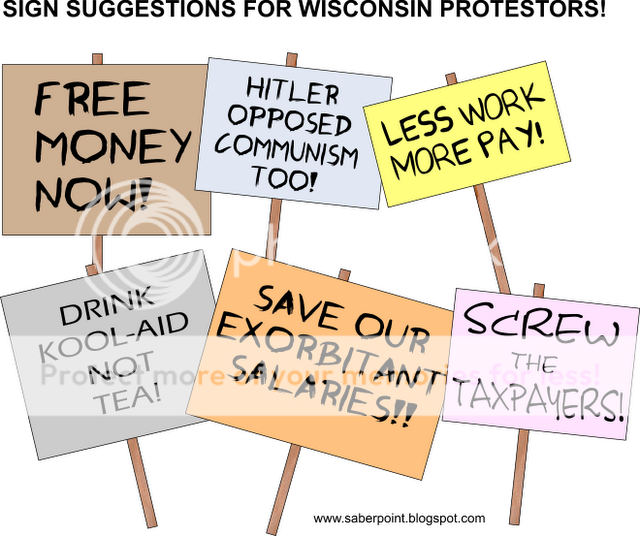SaltyDawg
Well-Known Member
#1: You're crazy if you think most, or even a large percentage of those protesters in Wisconsin are just tools the democratic party sent from other states. They are Wisconsin citizens.Your question: If the union is worthless, why is that a sticking point for either side, let alone both sides?
I guessed with this question you were asking why both sides care more about "collective bargaining" than teachers having to contribute to their health care and benefits
I'm not sure who you consider to be the sides, but I was answering why the Democrats care more about the union than the teachers the union supposedly represents.
The Democrats both state and nationally are supporting the unions side with money and protesters. Why are they doing that? Because they care about teachers personally? No, they already threw the teachers under the bus. They just don't want to give up the mandatory dues they provide, and the power they have to elect their candidates.
Not all teachers want to be in the union, especially if they are Republicans. I heard an interview with a Wisconsin teacher who said her complaint with the union was that even though she didn't want to join it she still had to pay 80% of the union dues. She also complained that her forced union dues went to support candidates that she didn't agree with. Why doesn't she get a choice on whether to pay union dues to a union she doesn't want to be a part of?
#2: Someone said unions are worthless and only bargain for benefits and pay the company would give non union workers anyway. If that were true, then there would not be thousands of workers protesting in order to keep their right to collective bargain. And that certainly wouldn't be the only sticking point.
#3: I agree that nobody should be forced to join a union. And nobody should be forbidden from joining one either.
Sent from my HTC Evo using Tapatalk.

